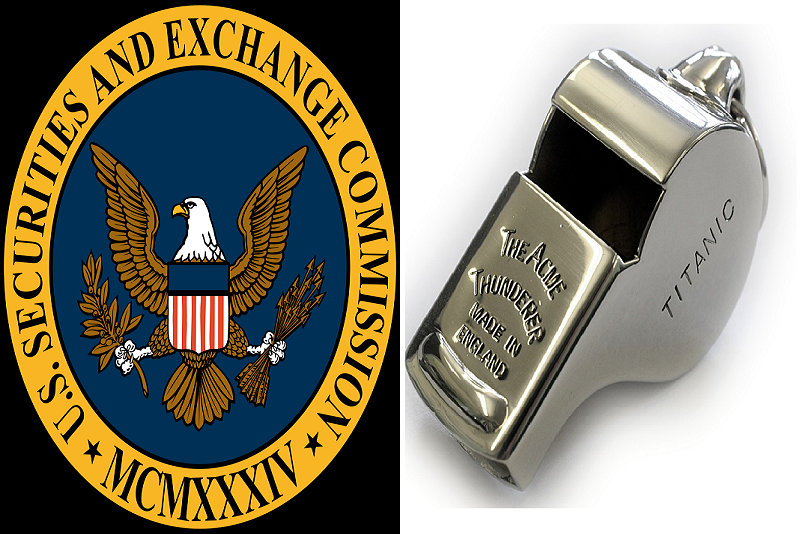BROWSE BY TOPIC
- Bad Brokers
- Compliance Concepts
- Investor Protection
- Investments - Unsuitable
- Investments - Strategies
- Investments - Private
- Features/Scandals
- Companies
- Technology/Internet
- Rules & Regulations
- Crimes
- Investments
- Bad Advisors
- Boiler Rooms
- Hirings/Transitions
- Terminations/Cost Cutting
- Regulators
- Wall Street News
- General News
- Donald Trump & Co.
- Lawsuits/Arbitrations
- Regulatory Sanctions
- Big Banks
- People
TRENDING TAGS
Stories of Interest
- Sarah ten Siethoff is New Associate Director of SEC Investment Management Rulemaking Office
- Catherine Keating Appointed CEO of BNY Mellon Wealth Management
- Credit Suisse to Pay $47Mn to Resolve DOJ Asia Probe
- SEC Chair Clayton Goes 'Hat in Hand' Before Congress on 2019 Budget Request
- SEC's Opening Remarks to the Elder Justice Coordinating Council
- Massachusetts Jury Convicts CA Attorney of Securities Fraud
- Deutsche Bank Says 3 Senior Investment Bankers to Leave Firm
- World’s Biggest Hedge Fund Reportedly ‘Bearish On Financial Assets’
- SEC Fines Constant Contact, Popular Email Marketer, for Overstating Subscriber Numbers
- SocGen Agrees to Pay $1.3 Billion to End Libya, Libor Probes
- Cryptocurrency Exchange Bitfinex Briefly Halts Trading After Cyber Attack
- SEC Names Valerie Szczepanik Senior Advisor for Digital Assets and Innovation
- SEC Modernizes Delivery of Fund Reports, Seeks Public Feedback on Improving Fund Disclosure
- NYSE Says SEC Plan to Limit Exchange Rebates Would Hurt Investors
- Deutsche Bank faces another challenge with Fed stress test
- Former JPMorgan Broker Files racial discrimination suit against company
- $3.3Mn Winning Bid for Lunch with Warren Buffett
- Julie Erhardt is SEC's New Acting Chief Risk Officer
- Chyhe Becker is SEC's New Acting Chief Economist, Acting Director of Economic and Risk Analysis Division
- Getting a Handle on Virtual Currencies - FINRA
ABOUT FINANCIALISH
We seek to provide information, insights and direction that may enable the Financial Community to effectively and efficiently operate in a regulatory risk-free environment by curating content from all over the web.
Stay Informed with the latest fanancialish news.
SUBSCRIBE FOR
NEWSLETTERS & ALERTS
SEC May Limit Largest Whistleblower Awards, Along with Other Changes
by Howard Haykin
Having nearly 7 years of experience administering its whistleblower program (established in 2010), the SEC now appears to be experiencing symptoms of the “seven year itch.” On Thursday, the Agency announced plans to amend the rules governing the whistleblower program. The public has a 60-day window in which to submit comments.
“The proposed rules would, among other things, provide the Commission with additional tools in making whistleblower awards to ensure that meritorious whistleblowers are appropriately rewarded for their efforts, increase efficiencies in the whistleblower claims review process, and clarify the requirements for anti-retaliation protection under the whistleblower statute.”
HIGHLIGHTED PROPOSED CHANGES. The SEC would make the following modifications and clarifications to the existing rules:
► Additional Tools in Award Determinations. Allowing awards based on deferred prosecution agreements (“DPAs”) and non-prosecution agreements (“NPAs”) entered into by the U.S. Department of Justice (“DOJ”) or a state attorney general in a criminal case, or a settlement agreement entered into by the Commission outside of the context of a judicial or administrative proceeding to address violations of the securities laws
► Additional considerations for small awards. Based on the fact that over 60% of the awards given out have been less than $2 million, the SEC proposes that it be authorized to adjust the award percentage upward under certain circumstances (subject to the 30% statutory maximum) to an amount up to $2 million.
► Additional considerations for exceedingly large awards. Based on the fact that over 40% of the aggregate funds paid to whistleblowers have been paid out in only 3 awards, the SEC proposes that it be authorized to adjust the award percentage so that it would yield a payout (subject to the 10% statutory minimum) that does not exceed an amount that is reasonably necessary to reward the whistleblower and to incentivize other similarly situated whistleblowers. However, in no event would the award be adjusted below $30 million.
► Elimination of potential double recovery under the current definition of “related action.”
► Uniform Definition of “Whistleblower.” To be consistent with recent court decisions, the SEC would modify Rule 21F-2 so that: (i) for purposes of retaliation protection, an individual would be required to report information about possible securities laws violations to the SEC “in writing;” and, (ii) to be eligible for an award or to obtain heightened confidentiality protection, the additional existing requirement that a whistleblower submit information on Form TCR or through the Commission’s online tips portal would remain in place.
► Increased Efficiency in Claims Review Process. The SEC would be afforded the ability to bar individuals who repeatedly make frivolous award claims in Commission actions.





